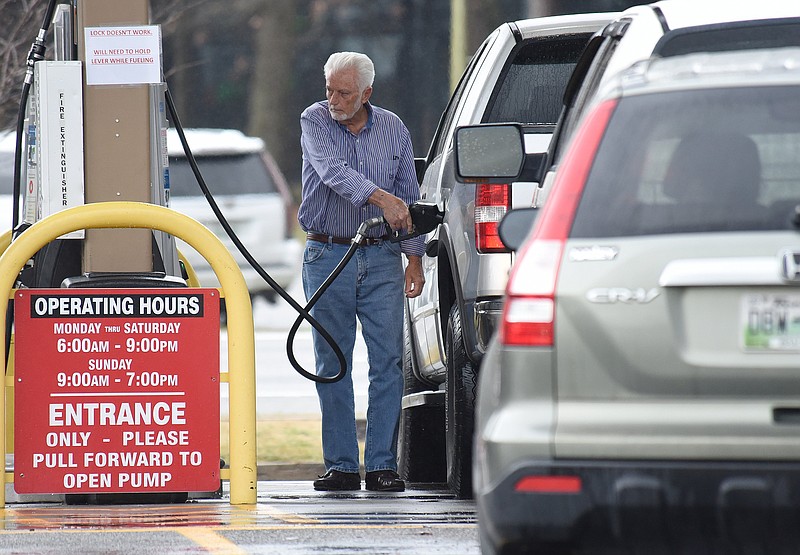Higher road construction costs and the increased use of electric and fuel-efficient vehicles will take an increasing bite out of revenues needed to keep Tennessee's public roads and bridges repaired and replaced, a government advisory group told lawmakers Wednesday.
By 2040, 10% of all vehicles on Tennessee's roadways are projected to be electric vehicles, or EVs. Those drivers won't be paying the state's gas tax, which has traditionally provided the bulk of funding for state and local road repair and construction projects.
At the same time, the average national vehicle fuel efficiency is expected to increase, from 23 miles per gallon today to 30 miles per gallon by 2040, further limiting consumers' fuel purchases -- and the payment of fuel taxes.
(READ MORE: How some Hamilton County municipalities plan to use millions in federal recovery funds)
Meanwhile, inflationary costs associated with roadwork are soaring. By 2040, at current rates of inflation, Tennessee would see a $399 million reduction in its gas tax spending power, according to the Tennessee Advisory Commission on Intergovernmental Relations.
"While the growing adoption of EV's may not become a major issue for road funding in Tennessee for decades, it, along with changes in fuel economy, increasing inflation and decisions about the distribution of various fees points to a need for future modifications to Tennessee's road funding system," Bob Moreo, the advisory commission's research manager, told lawmakers.
The commission provided initial recommendations for lawmakers to consider when the General Assembly reconvenes in January.
(READ MORE: Study ranks Tennessee best in road quality among all states)
They include sharing the current $100 registration fee required from electric vehicle owners with city and county governments for their road work projects -- a similar model to the revenue sharing with the state's fuel tax collections.
The advisory commission also recommends regular reporting by the Department of Revenue to the legislature tracking the impact of inflation on the state's road funding.
And, commission members urged lawmakers to focus on policies that balance the ability to raise revenues with equity for drivers, no matter what vehicle they drive.
Tennessee has 96,000 miles of public roads and 20,000 bridges. While the federal government provides the state with funding for road work, it is designated only for about 1/5 of all of the state's roads and highways. Road repair and building funding comes primarily from vehicle registration fees and the gas tax, paid by consumers who fill up at the gas pump.
Read more at TennesseeLookout.com.
